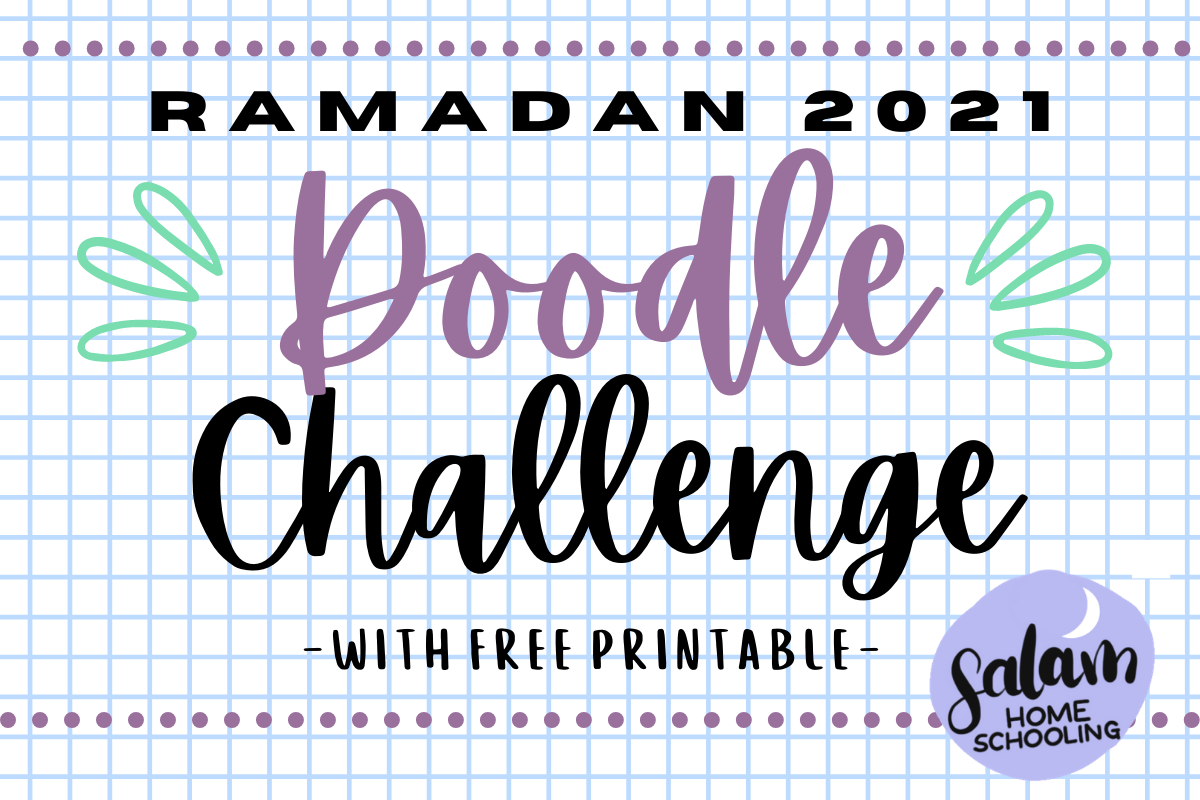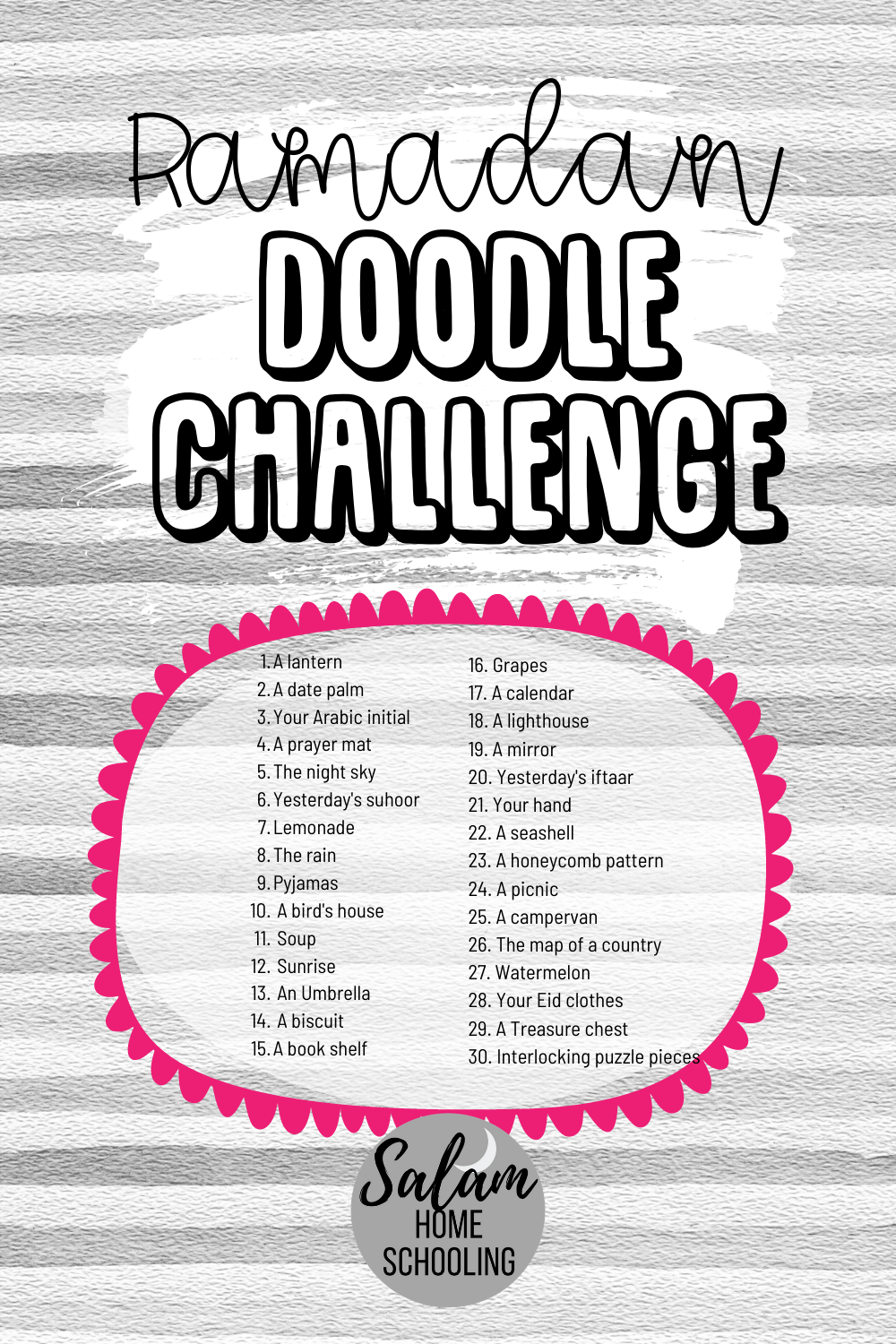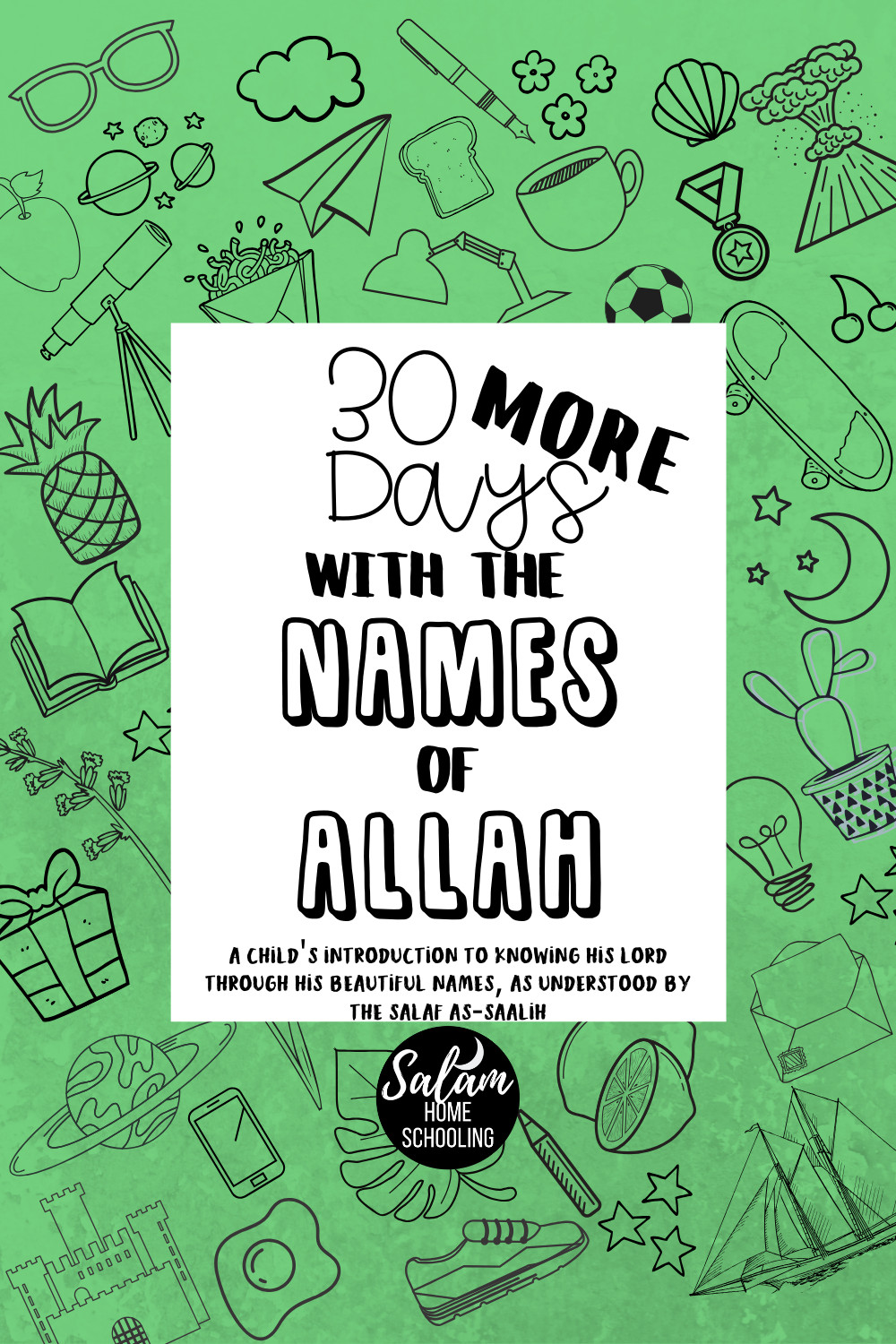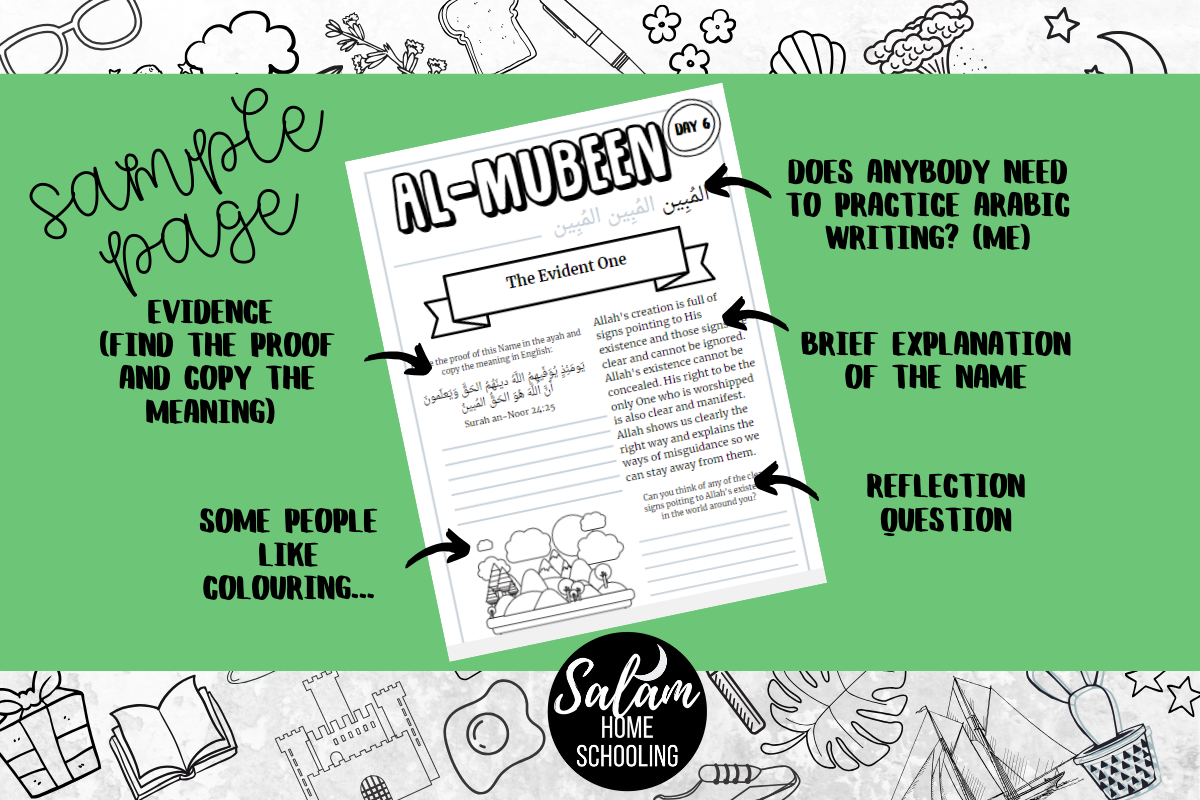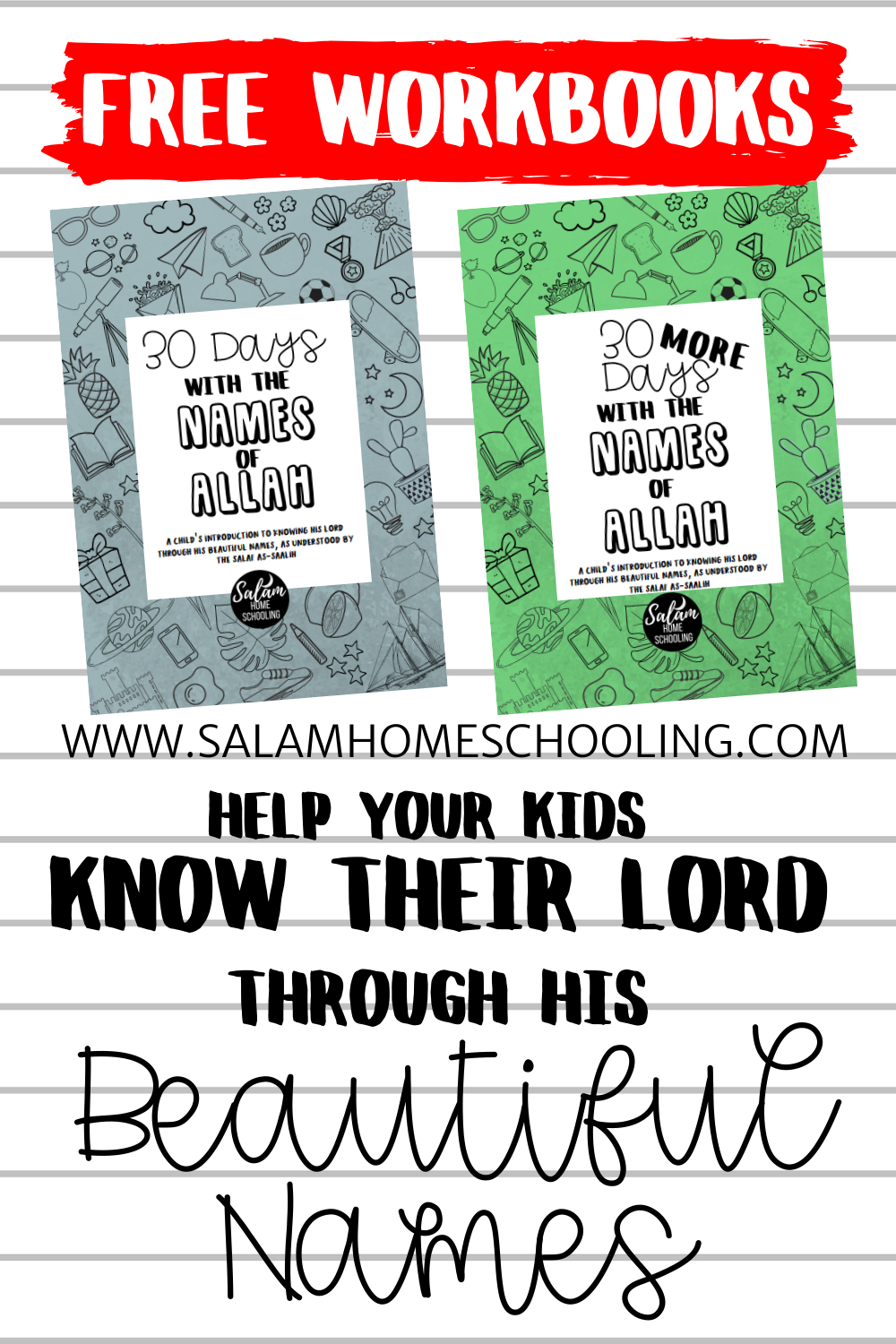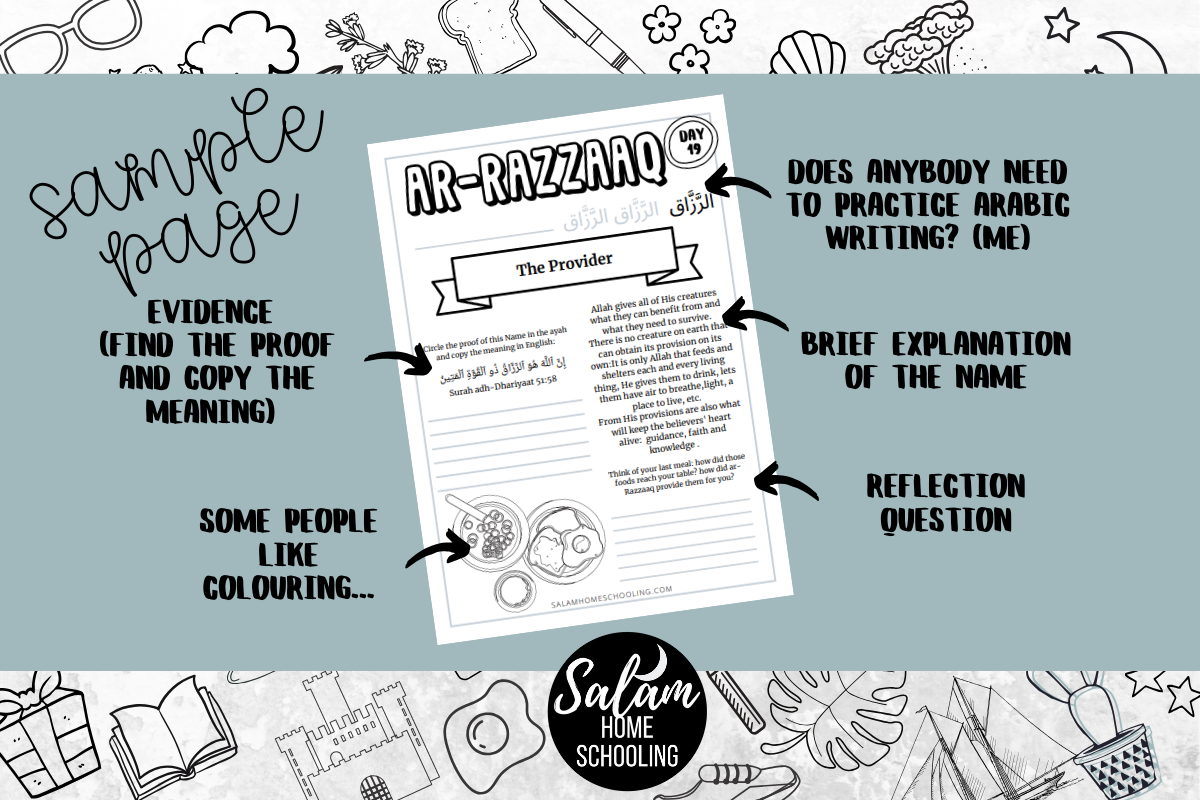Assalamo alaykum wa rahmatullahi wa barakatuh and welcome.
Is it just me or it all seemed a lot easier when the children were smaller? Or at least all in the same sort of age group…
Now in one household of 5 there are 4 different schedules for meals and sleeping; and hardly any time when kids are not around in 24 hours. Alhamdulillah.
Needless to say, Ramadan is NOT meant to be stressful. Maybe a little tiring, but certainly with tiring yourself out in the worship of Allah should come a very deep feeling of hope and contentment.
Then how can this blessed month – this amazing gift from Allah to the believers – let some of us feel anxious, overwhelmed and even disappointed?
1. Your Iman will not raise itself
The Messenger of Allah, salla Allahu alayhi wa sallam, said:
“When the month of Ramadan begins, the gates of Heaven are opened and the gates of Hellfire are closed and the devils are chained.”
[Bukhari and Muslim]
Ramadan is a time in which Allah makes the path to good easier for us to follow, and the path of evil easier to avoid, alhamdulillah. Having said that, Ramadan is not “fairy dust”. It will not, by itself, fix your heart.
A person will not go to bed on the 30th of Sha’ban with some sickness in her heart to wake up on 1st Ramadan completely purified. If you are lazy, neglectful or “in a bad place” in Sha’ban – and you do nothing to rectify that – the mere coming of Ramadan will not “magically” solve your problem and turn you into a brilliant Muslim, just like that.
A few years back, a month or so before the beginning of Ramadan, my family was afflicted by a test, and Allah is to be praised in every situation. In those dark and difficult days, I found myself desperately yearning for Ramadan to come, and, when it did, I felt even worse: I had to come to terms with the fact that Ramadan was not the “magic pill” that – in my particularly fragile state – I wished it to be.
Ramadan will not automatically mend your heart from sorrow, sin or heedlessness. Do not expect it do that. Instead, take yourself to account. Pinpoint your weeknesses and commit to seek Allah’s help and strive to improve. It is an amazingly good time to do that!
As the scholars of the salaf explained, Iman increases and decreases. It increases by obedience to Allah and it decreases by disobedience to Him. (read the full article on the definition of Iman HERE). There is a cause-effect link between our conduct and the state of our heart. Our level of Iman will also determine our level of contentment in this life.
Wishful thinking is not the way to succeed in Ramadan or outside of it. Because Allah’s mercy is vast, particularly so in Ramadan, we are likely to get much more than what we put into it… but still, we cannot expect to emerge from this Ramadan as better Muslims without working for it. And we ask Allah’s help in this.
2. Manage your expectations
Come to think of it, Ramadan seemed so much easier 10 years ago because I only had myself to think about; only my acts of worship to perfect, my body to keep sufficiently hydrated and rested and I was trying to make the most of Ramadan for myself only.
Much of the Ramadan related mom-stress originates from this: we want our children to have a great Ramadan; and, by “great Ramadan”, we mean a month of special, intense worship, well spent according to our (adult) standards.
We want them to “feel it”, like we feel it; or better, like we used to feel it 10 years ago, before we started stressing out about them “feeling it”!
Typically, the kids can’t quite do it, or can’t quite have full understanding of it. Then we feel the stress of “not having done enough.”
But I am going to share with you something very important I learned from one of my teachers (a female student of knowledge). A true game changer Allahumma baarik: children (and here I refer specifically to children below the age of puberty) lack ihtisaab. Ihtisaab is the ability to do good deeds while actively seeking and anticipating the reward of Allah. They are very capable of doing good deeds, but their association between that and striving for Jannah is still at the developing stages.
They are much more absorbed in the here and now than adults. So you might explain the importance of praying, or fasting, or wearing hijab and give daleel to them until you are blue in the face, and they might be convinced to do it, but at times they will still find it a struggle, rather than the seamless consequence of love for their Creator that mom would like to see.
This might lead you to think: “Doesn’t this child love Allah???” She does, but she is not you. Children do not understand the reality of this life and the Hereafter like we do; they are only in the process of learning that.
I transcribed and condensed the lessons that dealt with this topic in the post If they Don’t love you, you will lose them, on my old blog. I wholeheartedly recomend it. I go back periodically to it myself.
Do not expect your children to be as selfless as an adult can, to strive as hard for an Afterlife they don’t comprehend as well as you do. Some might, but the reality is that most won’t (yet).
If your child (who is perfectly able to fast) moans that he wishes he didn’t have to because he is hungry for a doughnut, do not get angry at him and brand him “evil” or “sinful”; don’t react as if you had heard it from another sister.
Excuse his lack of understanding of what it means to do something hard seeking and anticipating the reward of Allah (ihtisaab). Model a better behaviour and move on.
Don’t accuse him of loving a doughnut more than he loves Allah (it simply doesn’t work like that in his head!); instead, encourage him to hang on, tell him that Allah is pleased with his effort – and so are you – and talk to him about the rewards of Paradise.
Think of us adults: we have full understanding of these matters, yet how many times do we become complacent? How many times do we fall short?
We all need mercy. So, even more so in the case of your children, let’s encourage and tolerate.
3. Low and slow
Tolerance has many levels.
There is making excuses for your child acting like a child when it comes to fasting and other difficult things to do (as mentioned above).
There is also the tolerance you need not to bark at your most chatty kid, who is uber-excitedly following you around to tell you – in a huge amount of detail – all about something you can’t even fully comprehend because it is 6am, the baby is crying, you slept 2 hours and you can’t even have coffee.
Lower your voice.
Even lower than normal, just to be on the safe side. Don’t spoil your fast because you stepped on a Lego. Even if it is the 15th you have stepped on today!
I am not say you have to turn a blind eye to behaviour that needs to be rectified, but as for anything that is less important than that, let it be less important. Do not let the noise and mess that usually come in the package with kids get to you. Anger will not help the situation.
This is something to bear in mind at all times, but even more so in Ramadan, when anger can burn through our hard earned rewards like wildfire.
Let’s make it an absolute priority for the month of Ramadan to display real patience, and let’s ask Allah’s help plentifully for it, among all other things.
If you find you become irritable under pressure, do what needs to be done to lessen that pressure.
If you find it hard to maintain your usual routine, simplify it.
If you find the need to – and are able to – do less. You have children or family members that cannot fast, so they need meals at different times? Instead of cooking from scratch each time, make sure the fasting and the non fasting can all eat the same one meal that day.
Try to do those big twice a year type household chores before Ramadan (or live with it until after it!) and suffice yourself with doing what is needed around the house.
Giving yourself permission to slow down is very important if you run your homeschool as usual during Ramadan.
One of the greatest perks of homeschooling is its flexibility: don’t feel that you must “crack the whip” through Ramadan because kids who go to school would have to go even if they are fasting. That is true, but our kids are not in school; we have the freedom to choose a more relaxed schedule (or no schedule at all) if that makes their fasting easier.
In general, the body tends to get used to fasting and many people find no difficulty in carrying on their usual work or study. If that is how you and your kids roll, then great alhamdulillah! But if not, then say alhamdulillah and let your child sleep through until dhuhur time if she was up late praying taraweeh, and let the books gather some dust for 30 days, if they must.
As homeschoolers, we are free from the constraints of the academic year. We determine our academic year.
We have the choice to put worship before schoolwork. And if that is not the top reason why we homeschool then I don’t know what should be!
4. Feed the heart
“Remember when we were little in Ramadan and Ummi was so busy making *insert name of dish* that you would get your head bitten off just for walking into the kitchen???”
I don’t want my children to say this in 20 years!
This kind of behaviour should not be associated to Ramadan. As always, what they see us do counts way more than what we tell them. In Ramadan, the heart must be fed more than the body.
We need to work on perfecting our acts of worship, controlling our character, increasing our knowledge and understanding and, in general, having greater awareness of Allah.
All the family must be on board: Ramadan is the month of fasting, not feasting. We should all be content with modest meals. Do not make food your main occupation, this month of all months! Cut out excessive food shopping, preparation and consumption. As a result, you will be less stressed and more focused on what really matters.
Yes, feed the fasting. Yes, make nice meals for your family. Don’t turn Ramadan into a food festival though. It should not be about what’s for iftaar.
5. Let family traditions create themselves
Mark Ramadan as special in your household in a way that doesn’t feel like a chore. The aim is to increase the anticipation and joy we connect to Ramadan. All of us: Mom included!
As for family traditions, if you are a relatively new family, know that true family traditions are not something forced on by a family member (because you saw it online, because that’s how things are done “back home”, etc…); they are what you all enjoy and would like to repeat; what you naturally feel inclined to do on special occasions because it makes you all happy. Again, all of you.
Maybe Ramadan can be the month your children are allowed to help in the kitchen to make treats to share with the neighbours; or it can be the month you go through your clothes, books and toys and decide what to donate or sell to raise money for a cause picked by them. It can be the month in which Maths and English are replaced by stories of the Prophets, curled up together on the sofa, or spread out on a blanket in the garden. Ramadan can be the time when the children are allowed to stay up late and experience going out as a family in the middle of the night for taraweeh. It can be the time when, after saving up and anticipating it all year, we travel to a Muslim land to experience this precious month with extended family, and, if we cannot do that, we can keep in touch more closely with them, practice our Arabic from home and try out their traditional iftaar recipes.
You are the mom and the homemaker. You “make the home”, every single day. You can “make” your children’s Ramadan too! It doesn’t have to be expensive, or fancy, or creative… it only requires a little thought and a smile on your face. a positive atmosphere to be maintained.
Think back to your family’s ways to mark special occasions when you were a child. You will probably find that it was very simple things that created that positive association for you.
Read here about what we will do (insha’Allah) in our home (and homeschool) this Ramadan.
Have a look inside and download our FREE “Sittings in the Month of Ramadaan workbooks HERE.
My children still love the (falling apart but) must-have Ramadan mailbox, where they will be surprised with a simple activity to do together each day (I planned those based on what I already had available in the house, you can read about it HERE). They like to deliver food to the neighbours when we can. They love it when we can all go to buy and give the food for the zakat-ul-fitr and when we put up the Eid decorations and bake a small mountain of shortbread cookies. Simple things like these, alhamdulillah.
6. This is what Allah wants from you right now
The worship of the month of Ramadan is intense. Having children is hard work. Homeschooling can be taxing. Combining all three factors can be positively draining.
Smile and remember: this is what Allah has given you to deal with at this point in your life. Embracing it is part of your worship.
Abu Hurairah (radi Allahu anhu) narrated the Prophet (ﷺ) said:
If the woman prays the five daily prayers, fasts in Ramadan, safeguards her chastity and obeys her husband, she will enter into Jannah from any door she wishes.
[Ibn Hibban, a saheeh hadeeth]
You might have a lot less time available to dispose of as you please and your worship might be less energetic and full on then when you were an unmarried, younger woman, but this does not make your Ramadan deficient!
When you sit to read Qur’an and your young children interrupt you every 2 minutes, you tend to them. You cannot attend the taraweeh prayer in the masjid because you have babies, so you pray at home, without the imam’s precise, emotional recitation. You used to cook iftar for your whole street, volunteer, teach, raise money… now it’s all nappies and workbooks. Maybe you are pregnant or breastfeeding (maybe you have been for years, Allahumma baarik!) so fasting itself may be out of the window…
Sounds familiar?
Everybody is being tested, every single day. We are tested with different things at different times, but our whole life is a test.
Embrace what Allah has given you. Fulfil your responsibilities to those you are in charge of and do so intentionally. At times you may wish you could choose a different way to please Allah, a way that you perceive to be better and more satisfying, but He is the One who knows best. It is all part of your worship in this season of your life, alhamdulillah.
May Allah guide us all, allow us and our families to reach this blessed month and to take full advantage of its bounties.
Do you have any tips for a stress-free Ramadan?
What are your favorite Ramadan family traditions?
Share in the comments below!


